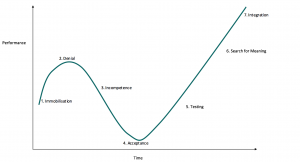Hi Everyone. I hope you have had a great summer, even though the weather in the UK was pretty soggy at times! Thanks for all the great comments on the blog. It’s good to know that you have missed having Choose You thoughts floating in to your inbox every other week!
As well as having a lot of rain around I was also surrounded this August by a lot of exam results, with my teenagers getting their A level and GCSE results. And of course, whether good or bad, getting exam results means that there are choices to be made as to what to do with them. They are a seemingly very important part of the jigsaw that helps young people bridge the gap from one part of their life to the next.
Sometimes things don’t go to plan, and that’s certainly true with exam results. On results day there was a whirlwind of messaging from my daughter’s friends who had done worse than they hoped. And often the worse bit wasn’t that they had had a disaster. It was just that they had missed a grade by, literally in one case, one point.
And one point means that they can’t go where they had chosen to go or do what they had chosen to do.
Through this turmoil around university places I noticed the phases that individuals went through, that they were all following the same psychological pattern:
- It can’t be true. How can this happen (face timing, texting, sharing their shock)
- Sense of gloom and upset, resistance and a wish to fight back (tears, recrimination, at themselves for failing or at the system for failing them: ‘if only I hadn’t misread that question’: ‘the exam was so unfair’)
- Determination to sort it out (getting exam papers remarked, pleading with university admissions tutors)
- Depression when that didn’t work, and that all the other options weren’t going to be fab enough
- A slow acceptance that it is what it is and they need to do something different (take up their second choice, go through clearing, take a year out and explore their options)
- And then finally, after a week or so, a realisation that perhaps the option they have now chosen is going to be great, and maybe even better than the choice they missed out on (revisiting their second choice university and really liking it, realising their friend is going there too, disliking their first choice uni for rejecting them, relishing a year to earn money and resit an exam, being excited to go out and get a job)
This pattern of course is one that is well recognised as the transition curve, and in a business setting often looks like this (if you click on it it gets bigger!):
And whether we are 18 or 80, the suggestion is that we all go through the same pattern.
It’s only recently that I realised that the transition curve is based on the work of grief counsellor Elizabeth Kubler-Ross. A Swiss-American psychiatrist, Kubler-Ross studied death and near death, and in her book ‘On Death and Dying’ identified 5 stagers of grief, which are the underpinning of what we now call the transition curve:
- Denial: it can’t be true. There must be a mistake with the diagnosis
- Anger: why me? It’s not fair
- Bargaining: I’ll do anything to make it different
- Depression: I am so sad, what’s the point of going on with the time I have left
- Acceptance: I can’t change it so I must prepare for it, and it will be OK
Now don’t get me wrong, missing out on a uni place is not, of course, the same as loosing a loved one or being told you are terminally ill. But Kubler-Ross’s insight about what loss and upset do for us is powerful:
Learn to get in touch with the silence within yourself and know that everything in life has a purpose
Everything in life has a purpose, if we choose to see it that way.
Having knock backs and coping is what builds us. It will build those young people who have had to rethink their future. We all have ‘bad’ stuff happen to us. My own cancer diagnosis was really crap and I don’t want to go there again or wish it on anyone else, but I do acknowledge that I went through Kubler-Ross’s stages of grief (for my health, for my old life, for my future) and that it has given me insight and depth that I did not have before.
Another quote from Kubler-Ross that I love is:
People are like stained glass windows. They sparkle and shine when the sun is out, but when the darkness sets in, their true beauty is revealed only if there is a light from within
Life without set backs, sparkling in the sunshine all the time, offers us no opportunity to shape ourselves and grow strong, to be resilient and proud that we have survived. I, like all of us, am stronger because I have survived adversity. These young people are stronger because they have survived a disappointment. So if having a perfect life is not the goal, perhaps the goal is to deal with adversity so that your light shines from within?
Thank you for reading this blog. I am enjoying sharing the Choose You Project with you and I love hearing your thoughts, comments and examples of Choose You moments, so do please continue to share them with me, (you can email me at jenny@insight-out.co.uk )

